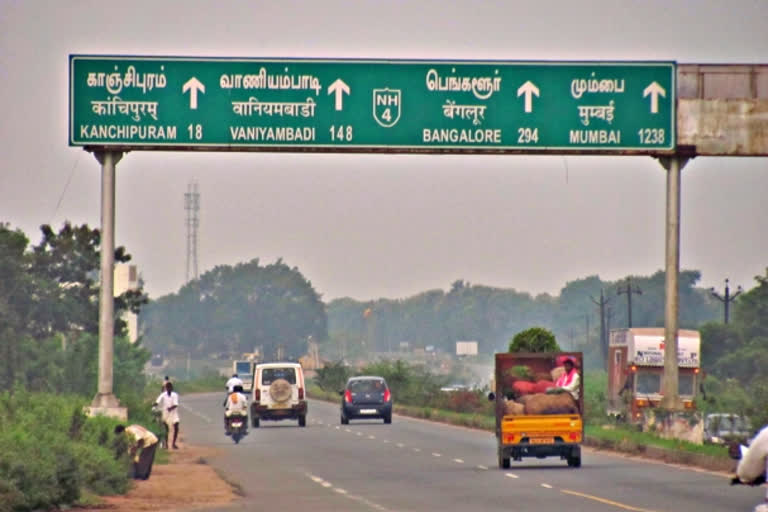Chennai (Tamil Nadu): After nearly a decade, one of the much-talked-about road projects, the Bengaluru-Chennai Expressway (CBE) is all set to commence soon, as the National Highways Authority of India (NHAI) has completed the land acquisition and acquired necessary clearance certificates such as environmental and forests.
The 262-km long Bengaluru-Chennai Expressway will be built at a cost of over Rs.14,870 crore. The motorists can drive at high speeds of 120 km per hour on the proposed road, which will pass through Karnataka, Andhra Pradesh, and Tamil Nadu and help reduce travel time between Bengaluru and Chennai by two to three hours.
After the project was proposed in 2011, the NHAI officials had to face stiff opposition from people, commercial establishments, and environmentalists while acquiring land for constructing the road. NHAI officials said that about 2,600 hectares of land needed to be acquired in three states - Karnataka (800 hectares), Andhra Pradesh (900 hectares), and Tamil Nadu (900 hectares). However, they had a tough time completing the process.
According to the blueprint of the project, the Bangalore-Chennai Expressway begins at Hoskote in Karnataka and runs 75.64 km within the state. In Andhra Pradesh, it runs for 88.30 km in Chittoor district, while it would pass through Tiruvallur, Kancheepuram, and Vellore districts in Tamil Nadu before ending at Sriperumbudur after covering 98.32 km.
"At present, there are two existing routes from Chennai to Bengaluru - one via Krishnagiri and Ranipet, which runs to 372 km, and the other via Kolar, Chittoor, Ranipet, and Kancheepuram, which is 335 km long. As per the new project, the road will pass through three states – Karnataka (71 km), Andhra Pradesh (85 km), and Tamil Nadu (106 km) and help reduce the travel time between Bengaluru and Chennai", said a senior technical NHAI official on condition of anonymity.
He also said that with the highway being designed for vehicular speed of 120 km per hour, it will have no intersections and will have pedestrian and vehicular underpasses to ensure safety. The expressway will also have elevated bridges, underpasses, and toll plazas.
Also read:NHAI plans cashless treatment facility on Golden Quadrilateral for road accident victims
Speaking to ETV Bharat, retired Professor of Anna University, K. P. Subramanian, who specializes in Urban Engineering, said, "transport networks are a catalyst for industrial and economic development. The proposed Expressway will benefit the rapid transit of men and material by decreasing the time and distance. However, there is also the other side of the picture. It will have an adverse impact on the environment and the ecology.
It will lead to the indiscriminate conversion of agricultural land and the consequent effect on food security, encroachment of water bodies and the ecological emission, environmental pollution, accidents, and climate change." He suggested that railways would have been a better sustainable option. The expressway may not also serve the poor and the downtrodden.
When contacted by ETV Bharat, S. Janakumaran, who was once the Project Director, NHAI (Kancheepuram) pointed out "Even as NHAI faced hindrance while acquiring land acquisition in the beginning, later it managed to complete the process. Later, NHAI floated tender and road construction will begin soon."



